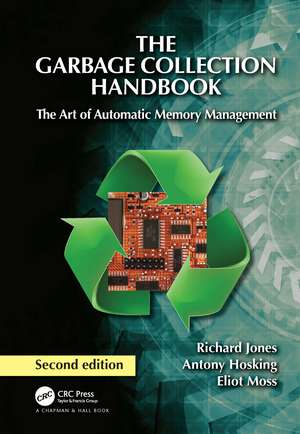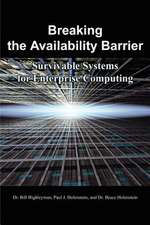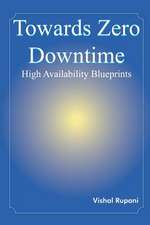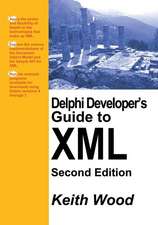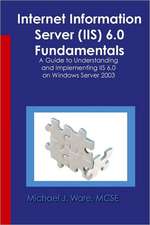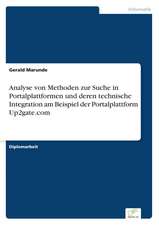The Garbage Collection Handbook: The Art of Automatic Memory Management: "International Perspectives on Science, Culture and Society"
Autor Antony Hosking, Richard Jones, Eliot Mossen Limba Engleză Hardback – 28 iul 2023
Universally acclaimed as the book on garbage collection. A complete and up-to-date revision of the 2012 Garbage Collection Handbook. Thorough coverage of parallel, concurrent and real-time garbage collection algortithms including C4, Garbage First, LXR, Shenandoah, Transactional Sapphire and ZGC, and garbage collection on the GPU.
Clear explanation of the trickier aspects of garbage collection, including the interface to the run-time system, handling of finalisation and weak references, and support for dynamic languages. New chapters on energy aware garbage collection, and persistence and garbage collection. The e-book includes more than 40,000 hyperlinks to algorithms, figures, glossary entries, indexed items, original research papers and much more.
Backed by a comprehensive online database of over 3,400 garbage collection-related publications
| Toate formatele și edițiile | Preț | Express |
|---|---|---|
| Paperback (1) | 303.49 lei 6-8 săpt. | |
| Taylor & Francis Ltd. – 30 sep 2020 | 303.49 lei 6-8 săpt. | |
| Hardback (1) | 400.54 lei 3-5 săpt. | +36.32 lei 4-10 zile |
| CRC Press – 28 iul 2023 | 400.54 lei 3-5 săpt. | +36.32 lei 4-10 zile |
Preț: 400.54 lei
Preț vechi: 500.68 lei
-20% Nou
76.66€ • 79.82$ • 64.78£
Carte disponibilă
Livrare economică 18 februarie-04 martie
Livrare express 01-07 februarie pentru 46.31 lei
Specificații
ISBN-10: 1032218037
Pagini: 609
Ilustrații: 8 Tables, black and white; 1 Line drawings, color; 77 Line drawings, black and white; 1 Illustrations, color; 77 Illustrations, black and white
Dimensiuni: 178 x 254 x 40 mm
Greutate: 0.98 kg
Ediția:2 ed
Editura: CRC Press
Colecția Chapman and Hall/CRC
Seria "International Perspectives on Science, Culture and Society"
Locul publicării:Boca Raton, United States
Public țintă
ProfessionalCuprins
Introduction
Mark-Sweep Garbage Collection
Mark-Compact Garbage Collection
Copying Garbage Collection
Reference Counting
Comparing Garbage Collectors
Allocation
Partitioning the Heap
Generational Garbage Collection
Other Partitioned Schemes
Run-Time Interface
Language-Specific Concerns
Concurrency Preliminaries
Parallel Garbage Collection
Concurrent Garbage Collection
Concurrent Market Sweep
Concurrent Copying & Compaction
Concurrent Reference Counting
Real-Time Garbage Collection
Energy-Aware Garbage Collection
Persistence and Garbage Collection
Glossary
Bibliography
Index
Notă biografică
Richard Jones is Emeritus Professor of Computer Systems at the School of Computing, University of Kent, Canterbury. He received a BA in Mathematics from Oxford University in 1976. He spent a few years teaching before returning to higher education at the University of Kent, where he has remained ever since, receiving an MSc in Computer Science in 1989. In 1998, he co-founded the International Symposium on Memory Management, of which he was the inaugural Programme Chair. He has published numerous papers on garbage collection, heap visualisation and electronic publishing, and he regularly sits on the programme committees of leading international conferences. He was made an Honorary Fellow of the University of Glasgow in 2005 in recognition of his research and scholarship in dynamic memory management. He was named a Distinguished Scientist of the Association for Computing Machinery in 2006, and in 2014 made a Fellow of the British Computer Society, a Fellow of the RSA and a member of AITO. He is married, with three children, and in his spare time he cycles and sails, including racing a Dart 18 catamaran.
Antony Hosking is Professor in the School of Computing at the Australian National University. He received a BSc in Mathematical Sciences from the University of Adelaide, Australia, in 1985, and an MSc in Computer Science from the University of Waikato, New Zealand, in 1987. He continued his graduate studies at the University of Massachusetts Amherst, receiving a PhD in Computer Science in 1995. His work is in the area of programming language design and implementation, with specific interests in database and persistent programming languages, object-oriented database systems, dynamic memory management, compiler optimisations, and architectural support for programming languages and applications. He was named a Distinguished Scientist of the Association for Computing Machinery in 2012, a member of AITO in 2013, and is a Member of the Institute of Electrical and Electronics Engineers. He regularly serves on programme and steering committees of major conferences, mostly focused on programming language design and implementation. He is married, with five children. When the opportunity arises, he most enjoys sitting somewhere behind the bowler¿s arm on the first day of any Test match at the Adelaide Oval.
Eliot Moss is Professor Emeritus in the Manning College of Information and Computer Sciences at the University of Massachusetts Amherst. He received a BSEE in 1975, MSEE in 1978, and PhD in Computer Science in 1981, all from the Massachusetts Institute of Technology, Cambridge. After four years of military service, he joined the Computer Science faculty at the University of Massachusetts Amherst. He works in the area of programming languages and their implementation, and has built garbage collectors since 1978. In addition to his research on automatic memory management, he is known for his work on persistent programming languages, virtual machine implementation, transactional programming and transactional memory. He worked with IBM researchers to license the JikesRVM Java virtual machine for academic research, which eventually led to its release as an open source project. In 2007 he was named a Fellow of the Association for Computing Machinery and in 2009 a Fellow of the Institute of Electrical and Electronics Engineers. In 2012 he was co-recipient of the Edsger W. Dijkstra Prize in Distributed Computing for work on transactional memory. He served for four years as Secretary of the Association for Computing Machinery¿s Special Interest Group on Programming Languages, and served on many programme and steering committees of the significant venues related to his areas of research. Ordained a priest of the Episcopal Church in 2005, he leads a congregation in addition to his full-time academic position. He is married, with two children. He enjoys listening to recorded books, movie-going and the company of cats, and has been known to play the harp.
